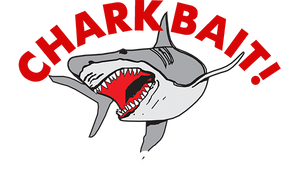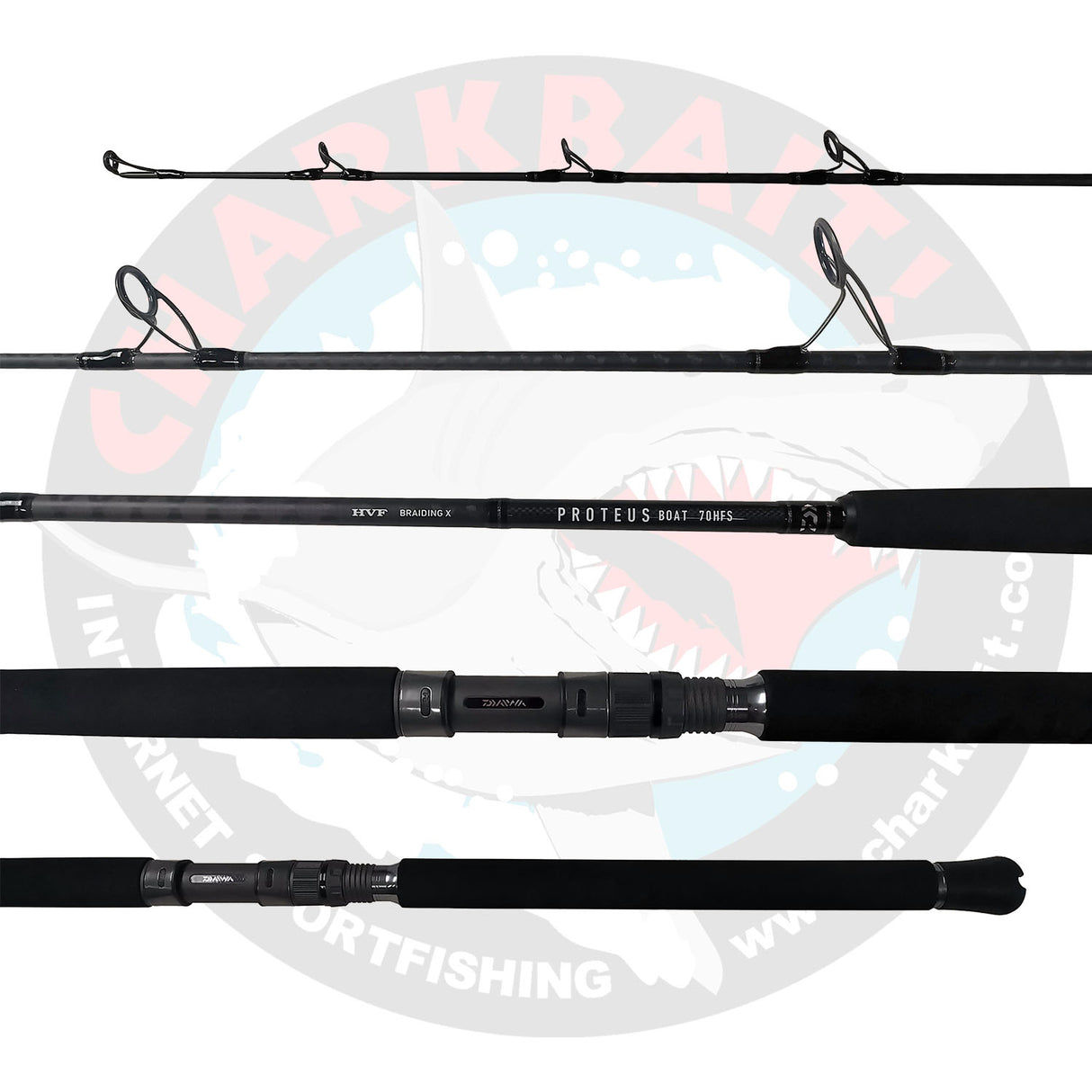Daiwa Proteus Spinning Rods
Daiwa Proteus Spinning Rods - PTB70MFS ...は取り寄せ中で入荷次第発送します。
受取を利用可能か読み込めませんでした
Delivery & Shipping
Delivery & Shipping
Do you offer free shipping?
We offer free domestic shipping on most orders over $150 subtotal. This excludes oversized and bulky items such as rods, blanks, gaffs, some tackle boxes, lobster nets, landing nets and other large items. Any 1 piece rod over 7'10" in length often incurs the biggest oversize fees charged by domestic shipping companies although we do have lower rates via other carriers on the West Coast. Any additional shipping fees will be automatically calculated at checkout before any billing is done.
What countries do you ship to?
We currently ship products within the US and to almost every country in the world, covering all available destination via UPS and DHL. International shipping times depend on the products and destination. Shipping rates are automatically calculated at checkout, for most countries we also collect Duties and Taxes and prepay them so you do not have to deal with the carrier or customs.
How long will it take to get my order?
Standard shipping can take 3-8 business days depending on location and order volume. If you have requested spooling on your reel or rigging on your lures then it could take an additional day or two. Next day & 2 day shipping is available on most domestic orders (for an additional charge). Orders placed after 12pm Pacific Standard Time will be processed the next business day.
What carriers do you ship with?
We work with UPS, FedEx, US Postal Service, GLS and DHL. When your order qualifies for free shipping or has a rod that qualifies for discounted shipping we reserve the right to choose which carrier it is sent with, otherwise you can pick the service you want. UPS Ground ranges from 1 to 7 day delivery, USPS Priority Mail is typically 1-3 days but is not a guaranteed express service, and USPS Ground Advantage takes roughly 3-7 business days. Longer rods are generally sent via GLS unless otherwise specified, this service ranges from 1 - 10 days.
⚠ WARNING: This product can expose you to chemicals which are known to the State of California to cause cancer, birth defects and or reproductive harm. For more information, go to www.P65Warnings.ca.gov.
- New Updated Nano-Resin & X-Tape Reinforced Blank
- FazLite Tangle Free K-Guides
- 5 Year Warranty
The new Proteus rods feature an updated blank design featuring the upgrades from the Winn Grip edition rods, brought over to the classic series. These rods also have an upgrade set of FazLite Fuji guides which are lighter and more resistant to abrasion when using braid over the previous generation. All of the spinning versions use lightweight EVA grips for added comfort and weight reduction when fishing. The larger K-Guides ensure the line has the least amount of friction going through when using larger spinning reels.
Daiwa’s Proteus rods were built specifically for the SoCal market needs. They did their homework, studied some of our CA produced state of the art rods, actions, etc. The result of doing the homework was the creation of some excellent rods which offer significant benefit to fishermen. Before going into specifics, let’s talk a bit about Daiwa. Daiwa is a 50 year old firm specializing in fishing (with a golf background too since rod making technology is also used to produce golf clubs). Daiwa owns their own factories, they are not buying rods built by a third party. They have control over what’s built, and they have responsibility for the consequences of not doing things right. Daiwa is the most traditional of Japanese manufacturers, and that’s a good thing.
For our West Coast style fishing (with broad appeal in other regions) typically for rods in the $200 range we’d be looking at fiberglass. Fiberglass is darn good, it’s durable, but it’s heavy when compared to other more modern materials. An all graphite rod has earned a bad reputation by comparison to fiberglass when it comes to durability. That’s not a function of the material, it’s a function of the way it’s used. United Composites (GUSA) demonstrated that an all graphite rod was equal to or better than ‘glass in terms of strength and durability – but that was the result of changing the way rods are laid up – using the material differently.
Fishermen have evolved along with the equipment we use. The use of braid has allowed us to fish smaller gear, with greater drag capability than in years past. With the smaller, lighter reels, we’re looking for rods that have high strength but weigh less and have a thinner diameter. Balance is better, ease of use improves, call it ergonomics or just comfort, we fishermen are looking for different rods than we did a decade ago – or at least we should be. Frankly, I see Okuma’s and Daiwa’s rods as filling the arena which our fiberglass rods formerly covered, with more modern designs and construction methods. I mentioned that Daiwa did their homework, one look at the Proteus rods confirms that, and once you pick up one of the rods you immediately note that we’re not playing with old school fiberglass…ah but we’re still benefiting from some ‘glass since these rods are our preferred composite build. Light weight, durable performance, thinner diameters, nicer action for use with braid, excellent components all combine to make the Proteus series rods something I really should have brought into our inventory a year earlier. There were some reasons for that decision, but the positive is that we’ve now brought in the line and it augments our range of rods significantly. Daiwa did a great job in designing the Proteus series rods. These are some excellent rods, well worth their price, and a serious upgrade from the typical $200 fiberglass rod. You are getting a great deal of state of the art technology in rod construction, that’s simply not available in a fiberglass rod.
When I mention modern rod designs, Daiwa gets the nod. They’ve been listening and learning, and applying new methods which result in better products for consumer. Cosmetically the rods feature thinner diameter blanks (in comparison to fiberglass) and they have greater hoop strength given their blank design. They aren’t exactly United Composites in terms of their design execution, but they are darn close and with Daiwa’s backing you have long term security. For a series of rods which run about $200, I’m of the belief that the days of the fiberglass rod may be over. The Proteus rods are made from graphite and ‘glass, they’re a composite rod (like UC’s CE and CP series, Calstar’s Grafighter, Seeker’s old Black Steel and other series). The durability of fiberglass can be matched by carbon fiber when the construction methods evolve away from the same old methods or building rod blanks. UC got that right (or should I say the former Grahpite USA nailed it). Daiwa applies some similar design features with their new Daiwa’s Proteus series rods – they’re a composite too. Proteus rods may have been made with the West Coast angler in mind, but the’re also exactly what a lot of other folks are going to appreciate, too. Nice rods, good values, great construction, very nice bend to ’em, wonderful to fish.
| MODEL | TYPE | ACTION | LENGTH | PIECES | LINE WEIGHT | GUIDES |
|---|---|---|---|---|---|---|
| PTB70MFS | Spinning | Fast | 7' | 1 | 10-25 (20-55 BRAID) | 8 |
| PTB70MHFS | Spinning | Fast | 7' | 1 | 15-30 (40-80 BRAID) | 7 |
| PTB70HFS | Spinning | Fast | 7' | 1 | 20-50 (55-100 BRAID) | 7 |
| PTB74XHFS | Spinning | Fast | 7'4" | 1 | 30-60 (65-120 BRAID) | 7 |
| PTB76HFS | Spinning | Fast | 7'6" | 1 | 20-50 (55-100 BRAID) | 7 |
| PTB80MFS | Spinning | Fast | 8' | 1 | 10-25 (20-55 BRAID) | 8 |
| PTB80HFS | Spinning | Fast | 8' | 1 | 20-50 (55-100 BRAID) | 7 |
| PTB80XHFS | Spinning | Fast | 8' | 1 | 30-60 (65-120 BRAID) | 7 |
Payment & Security
Payment methods
We ensure secure processing of your payment information and do not retain or have any access to your credit card details.




